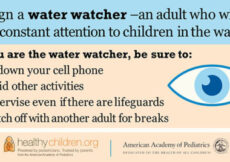By Céline Baron.

Blocking a family member on social media can feel like a drastic measure. After all, aren’t we supposed to stay connected with our families no matter what? Yet, in this digital age where our lives are often on display, the decision to block a toxic relative can be an act of self-care and protection. Let’s explore why some choose to take this step and how it can have significant emotional and psychological benefits.
When family becomes toxic online
Some family relationships can become a major source of anxiety and distress, and social media tends to amplify this toxicity. What is supposed to be a space for sharing moments of happiness and keeping in touch has, for some, become a platform for judgment, envy, and relentless comparison. The digital connection can sometimes make family members feel entitled to provide unwelcome opinions on every aspect of our lives—whether it’s our careers, personal milestones, or even the most mundane parts of our day-to-day.
Take the case of Rachel, whose cousin acted more like a copycat than a genuine supporter. Whenever Rachel shared photos of her vacations, her cousin seemed to follow in her footsteps within months—taking trips to the exact same destinations, posting similar pictures, and even going as far as mimicking Rachel’s style of clothing and adopting the same hair color. But it wasn’t just the imitation that stung. This cousin also used social media to undermine Rachel, leaving passive-aggressive comments and casting doubt on her choices.
For years, Rachel tried to be patient, to excuse this behavior by telling herself that “family is family.” However, the constant imitation, the subtle digs, and the boundary-crossing behaviors left her feeling invaded and drained. There’s a point where “keeping the peace” becomes a personal sacrifice that costs more than it should.
Choosing to block: between guilt and freedom
Eventually, Rachel decided enough was enough. One day, after another critical comment, she made a choice she’d been avoiding for years: she blocked her cousin across all her social media platforms. “I did it in a moment of frustration,” she admits. “All I could think about was how this relationship had weighed me down for over two decades. So I said, ‘Good riddance!'”
At first, Rachel feared she might regret her decision, that maybe after a few weeks or months she’d feel the urge to reconnect. But what happened next was quite the opposite: “Suddenly, my life felt lighter.” She noticed how much of her anxiety had been tied to this toxic relationship. No longer seeing her cousin’s posts or comments brought an unexpected and profound sense of peace.
By standing firm, Rachel discovered the power of setting boundaries. “Today, I don’t think about my cousin at all, and interestingly, no one else brings her up either,” she explains. By cutting off the source of negativity, she also cut off the obligation to explain or justify herself to others. Blocking wasn’t about hatred or revenge; it was about reclaiming her space, her peace, and her right to curate the relationships she allows into her life.
Rachel’s story is a powerful reminder that just because someone is family doesn’t mean they’re entitled to a front-row seat in your life. “We don’t have to love someone just because we share a family tree,” she says confidently. Relationships should bring joy, support, and a sense of security—not resentment, anxiety, or competition.
How blocking brings psychological empowerment
Blocking a family member can be incredibly empowering. It’s a declaration that we are no longer willing to accept toxic energy, that we value our well-being above the obligations imposed by familial ties. It allows us to regain control over who we allow into our digital—and emotional—space. Instead of dreading interactions, we create boundaries that protect us from the negativity that once invaded our lives.
This act of choosing who gets to be a part of our journey is incredibly liberating. It allows us to take back our power and rewrite our own narrative. The psychological benefit is not only the immediate relief from toxicity but also the realization that we have agency in our relationships. This newfound strength often becomes a skill that grows over time—once we recognize our ability to set boundaries, we’re better equipped to do so in other challenging situations.
How sophrology can help assess and manage familial stress
Sophrology, with its holistic approach and practical exercises, is an effective tool for managing the stress caused by toxic relationships. Using techniques like focused breathing, visualization, and relaxation, sophrology helps individuals become aware of the stress within their bodies and minds and begin releasing it.
One of the first steps in sophrology is identifying how relationships affect our well-being. It’s about tuning in and recognizing what emotions emerge from these interactions—whether it’s anxiety, frustration, or sadness. Understanding this emotional impact helps us clarify the boundaries we need to set.
Sophrology can also help in cultivating emotional distance from a toxic family member. Visualization techniques can be used to imagine a protective barrier between oneself and a harmful person, creating a mental and emotional safe space. Deep breathing exercises, meanwhile, assist in reducing the physiological effects of stress, bringing us back to a state of calm after a distressing exchange.
Ultimately, sophrology strengthens self-esteem and fosters an inner sense of safety. By consistently practicing these techniques, one can learn to set healthy boundaries without feeling overwhelmed by guilt or obligation. Sophrology helps not just in releasing stress but also in empowering individuals to actively protect their mental space.
Conclusion: choosing peace over obligation
Blocking a toxic family member on social media is not an act of cruelty—it’s an act of self-preservation. It allows us to say no to suffering and yes to our own well-being. Practices like sophrology enable us to understand the impact of toxic relationships on our lives and empower us to set boundaries that nurture our mental health.
Ultimately, family isn’t just about blood ties; it’s about respect, care, and support. We each have the right to choose who we want in our lives, and sometimes, choosing peace means letting go—even of those we once thought we had to hold onto.


































